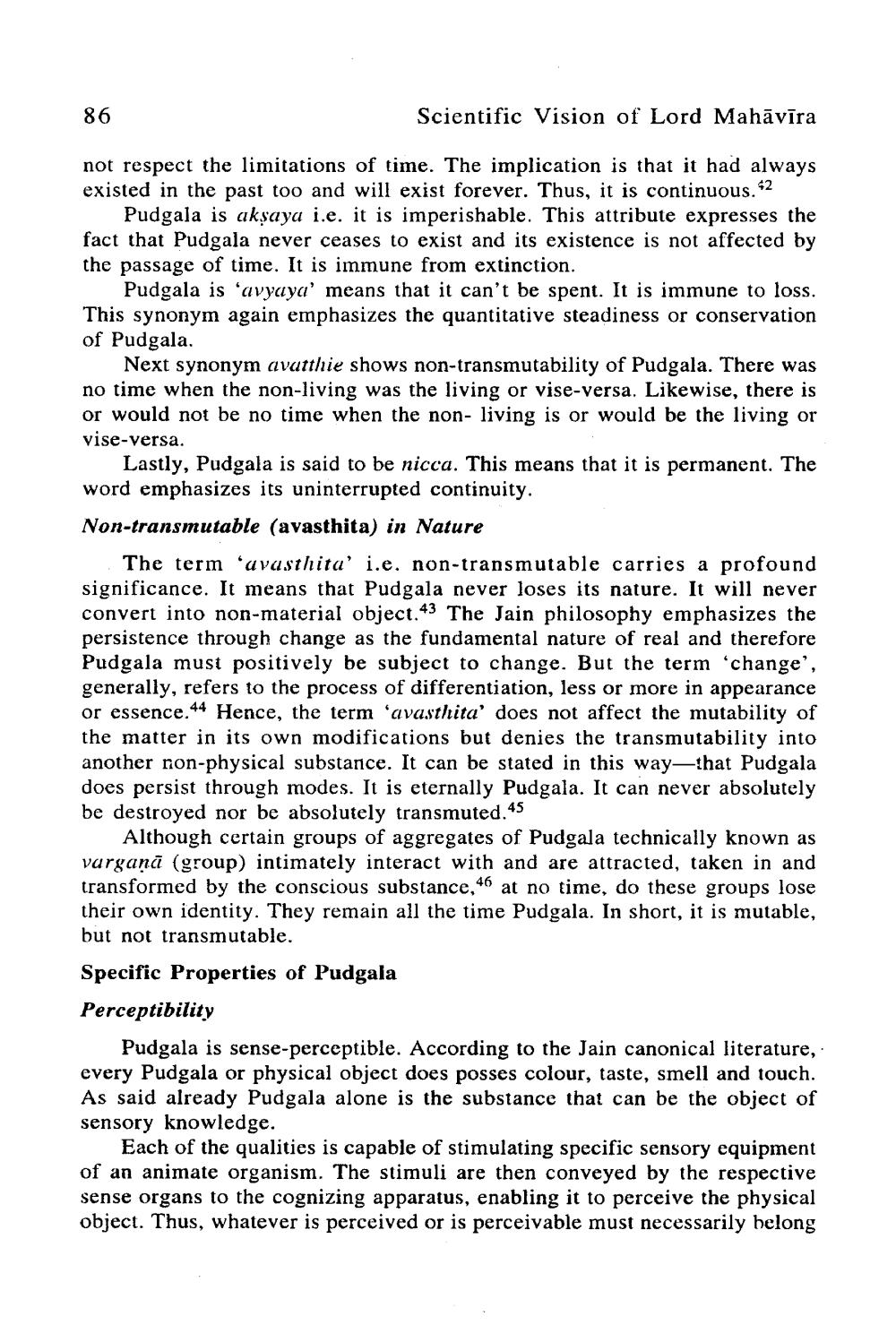________________
86
Scientific Vision of Lord Mahāvīra
not respect the limitations of time. The implication is that it had always existed in the past too and will exist forever. Thus, it is continuous. *2
Pudgala is aksaya i.e. it is imperishable. This attribute expresses the fact that Pudgala never ceases to exist and its existence is not affected by the passage of time. It is immune from extinction.
Pudgala is 'avyaya' means that it can't be spent. It is immune to loss. This synonym again emphasizes the quantitative steadiness or conservation of Pudgala.
Next synonym avatthie shows non-transmutability of Pudgala. There was no time when the non-living was the living or vise-versa. Likewise, there is or would not be no time when the non- living is or would be the living or vise-versa.
Lastly, Pudgala is said to be nicca. This means that it is permanent. The word emphasizes its uninterrupted continuity.
Non-transmutable (avasthita) in Nature
The term 'avasthita' i.e. non-transmutable carries a profound significance. It means that Pudgala never loses its nature. It will never convert into non-material object.43 The Jain philosophy emphasizes the persistence through change as the fundamental nature of real and therefore Pudgala must positively be subject to change. But the term 'change', generally, refers to the process of differentiation, less or more in appearance or essence.44 Hence, the term 'avasthita' does not affect the mutability of the matter in its own modifications but denies the transmutability into another non-physical substance. It can be stated in this way that Pudgala does persist through modes. It is eternally Pudgala. It can never absolutely be destroyed nor be absolutely transmuted.45
Although certain groups of aggregates of Pudgala technically known as vargana (group) intimately interact with and are attracted, taken in and transformed by the conscious substance, 46 at no time, do these groups lose their own identity. They remain all the time Pudgala. In short, it is mutable, but not transmutable.
Specific Properties of Pudgala
Perceptibility
Pudgala is sense-perceptible. According to the Jain canonical literature, every Pudgala or physical object does posses colour, taste, smell and touch. As said already Pudgala alone is the substance that can be the object of sensory knowledge.
Each of the qualities is capable of stimulating specific sensory equipment of an animate organism. The stimuli are then conveyed by the respective sense organs to the cognizing apparatus, enabling it to perceive the physical object. Thus, whatever is perceived or is perceivable must necessarily belong




